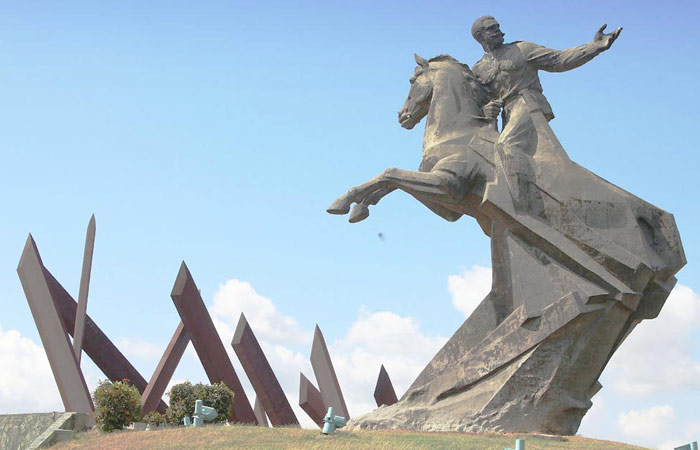Great honor for the Cubans. Several of the most illustrious makers of its independence were also figures of deep cultural roots, writers, and thinkers. The first that comes to mind is José Martí, deservedly universal and brilliant. But in that select group of occasional cultivators of letters and thought are, with golden profiles, Carlos Manuel de Céspedes in his capacity as poet, Máximo Gómez in that of narrator, Serafín Sánchez also in that of narrator, and Antonio Maceo, who sometimes he does not escape, as a political thinker. In addition, there are numerous mambises on horseback and machetes that in their campaign diaries left an indelible mark on testimonial and campaign literature, so useful for the reconstruction of the country's history.
Martí writes it in the newspaper Patria , on October 6, 1893: "And you have to put a matter to what he says, because Maceo has as much strength in his mind as in his arm." And later he adds: "vigor and greatness are natural to him."
Now let us give the floor to General Antonio so that he can show us a sample of his political and revolutionary thought, an example of the solidity of his creed and intellectual lucidity.
From Honduras, in a letter dated June 6, 1884, he wrote to his friend Anselmo Suárez:
When Cuba is independent, I will request from the Government that it be constituted, permission to make Puerto Rico free, since I would not like to give up the sword, leaving that portion of America a slave; but if I do not crown my goals, I will hand over the sword asking my companions to do the same.
Also from Honduras, now dated June 13, 1884 and in a letter to José Dolores Poyo, director of the newspaper El Yara , from Cayo Hueso, Maceo writes:
Spanish domination was a decline and a waste for the world that suffered it; but for us it is a shame that it disgraces us. But whoever tries to take over Cuba will collect the dust from its soil drenched in blood, if he does not perish in the fight. Cuba has many children who have renounced their family and well-being, to preserve their honor and their country. With it we will perish rather than be dominated again: we want independence and freedom.
This time, in a letter dated July 14, 1896 addressed to Colonel Federico Pérez Carbó, he expressed:
I never expected anything from Spain; He has always despised us, and it would be unworthy to think of anything else. Freedom is conquered with the edge of the machete, it is not requested; begging for rights is typical of cowards incapable of exercising them. Nor do I expect anything from the Americans; We must trust everything to our efforts: it is better to rise or fall without help, than to incur debt of gratitude to such a powerful neighbor.
Here is a fourth example, pure poetry, or pure poetry, whichever you prefer, in a farewell letter to his wife María Cabrales, dated March 1895:
On your way as on mine, full of thistles and thorns, difficulties will arise that only your virtue can overcome.
And at the end he prints this colossal sentence:
The first time we fought together for freedom; now it is necessary that he fight only doing for the two. If I win, the glory will be for you.
Let us remember this 125th anniversary of the heroic fall in combat of the Lieutenant General with this sample of his ideology. And let's stop at his correspondence, where we will find many other examples of the force of his patriotic and lyrical thought, always luminous.


Deje un comentario